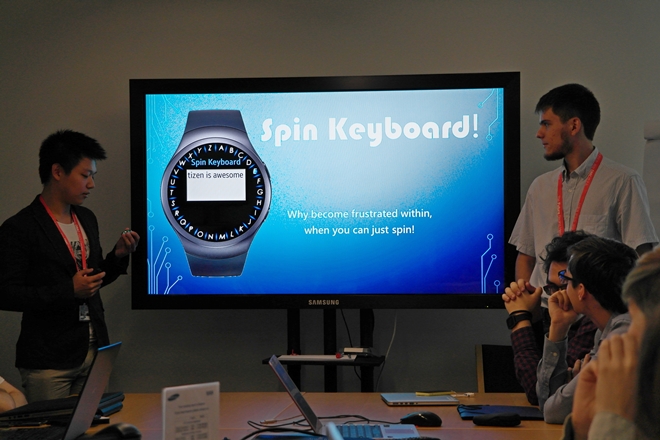Samsung Russia presented Tizen development lessons to students
The summer practice program organized by Samsung Research Centre from 4th to 29th July has come to an end in Moscow. Students in their 2nd and 3rd year from the capital`s leading universities, such as MSTU, HSE, MISA and MPEI, participated in the program and completed the practice course. After studying for two and a half weeks, they became familiar with web application development for smartphones and wearable devices based on Tizen OS and the training was guided by the centre`s engineers.

Beside the practical training, the program included a series of lectures that could answer common issues in the industry like teamwork and project management, and those that require highly detailed answers. For instance, lectures about machine learning on VELES platform, an open source Samsung project, and modern tools for autopatch were delivered by some specialists from Samsung Research Centre.

Students who took part in the practice session created their own apps on Tizen OS. Although they have not experienced such opportunities before, all of the young developers presented interesting and promising ideas for smartphones and smart watches.

For example, Makarychev Mark and Li Jiajian from MSTU introduced a new keyboard concept for watches that allows users to type letters just by rotating a bezel, and from the same university, Krutyakov Michael and Hmelevskii Vladislav demonstrated their version of a famous arcade game, Arkanoid, for the Gear S2. HSE also showed some promising talents as well. Sechkarev Vladimir presented an idea about racing in the Gear S2 and, as a team, Golovnin Viktor and Sapozhkov Evgeniy developed an app called LinkedMaps that builds routes for pedestrians and public transportation users, and gives a signal when they reach key points in their itineraries, such as junctions and stations.

A MISA student Pismennaya Daria showcased a solution for people who suffer from posttraumatic syndrome: it helps them calm down on their own or call for help in case of a panic attack, and to keep a record of their condition for specialized medical consultation. Pestova Anastasiia from HSE created an electronic educational device to help children understand colors that provides a written text and audio pronunciation in English according to their color choice.

Samsung Research Centre has been offering internships only for students in their final year previously, but it widened the opportunities of the summer practice program to 2nd and 3rd year students for the first time this year. Having implemented a survey after the program, the center found the 81% of the participants estimated Tizen lessons as “excellent”, and the 50% answered their overall impression about the practice training was “above expectations”. Apart from them, the 45% of the respondents answered that the program “meets expectations”.
“We were happy to see qualification, commitment and motivation of the students. The inquiry showed that they highly appreciated this year`s summer practice program and the useful knowledge on industrial engineering they gained in its frames. We are content with the results of the cooperation with Russian universities in this format that is new for us, and we plan to make summer practice annual,” – said Wong Ki Li, managing director at Moscow Samsung Research Centre (SRC).

Interest for Tizen is growing both in Russia and worldwide, and the OS’s popularity is getting bigger not only as a mobile platform but also as a platform for IoT systems.
 Previous Post
Previous Post